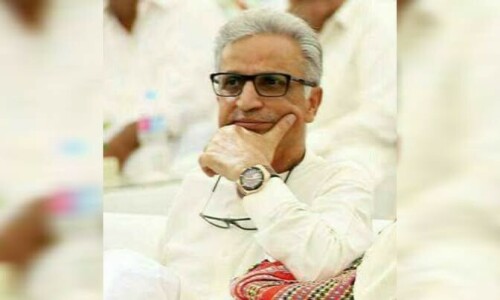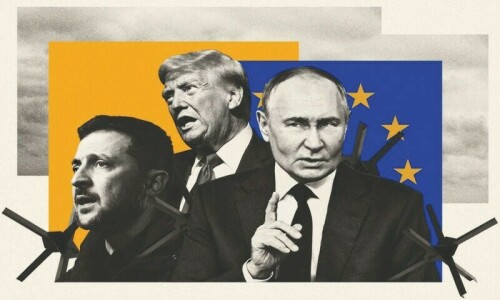AS Pakistan faces a resurgent wave of terrorism, important questions need to be discussed about how the media covers acts of violence, especially pertaining to its live coverage of hostage/combat situations. At the moment, rolling coverage of acts of terrorism and their aftermath is the norm, as was witnessed during last week’s militant siege of the Karachi Police Office. In this regard, electronic media regulator Pemra on Monday issued a notification banning live coverage of terrorist attacks. The regulator cited a variety of reasons for its decision, including the fact that such coverage can create hurdles in rescue and combat operations, adding that media workers too could put their own lives at risk by ignoring protocols. Therefore, citing the 2015 media code of conduct, as well as other legal precedents, the authority banned the broadcast, rebroadcast and live coverage of explosions, blasts and acts of terrorism.
There can be little argument with the point that hostage situations should not be covered live, as the airing of sensitive material during such coverage can compromise security operations by leaking confidential information to militant handlers who may be active outside the conflict zone. A similar situation was witnessed during the terrorist attack targeting GHQ in 2009. In the aftermath of that episode, the media fraternity hammered out a code of conduct concerning the live coverage of such events. It is time media organisations themselves reviewed and updated this code. Going live in such circumstances can put the lives of hostages as well as security and rescue personnel at risk, as terrorists can have advance warning of the law enforcers’ movements. Yet the public also has a right to know, and in the absence of credible information during such operations, wild rumours and outright lies can spread panic. Therefore, there needs to be a balance between maintaining operational secrecy and providing credible information to the public. This can be done if the state appoints official spokespersons who can provide the media with verified facts about a particular counterterrorism operation. It is also true that media personnel need better training — particularly in reporting in active conflict zones — for their own safety as well as those they are reporting on. The state should not arbitrarily ban media outlets, but the media industry does need to discuss SOPs internally to ensure credible and responsible coverage of acts of terrorism.
Published in Dawn, February 22nd, 2023










































